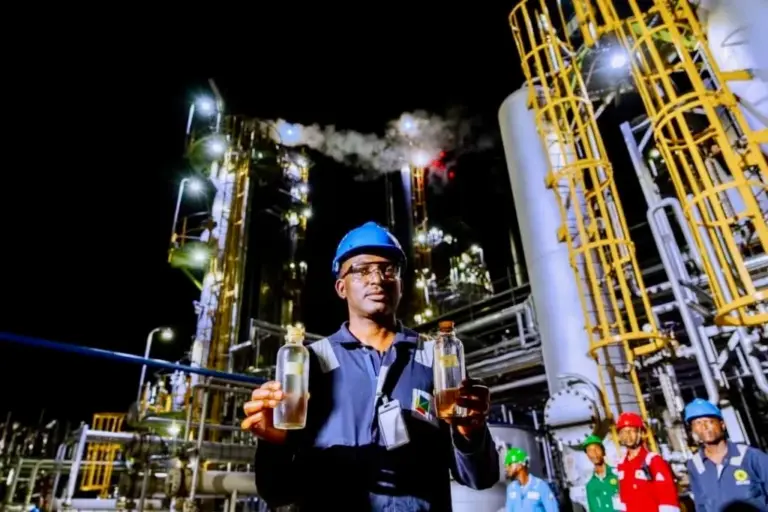Nigeria’s petroleum industry is reeling from another high-profile corruption crisis as the misappropriation of nearly $3 billion in refinery rehabilitation funds sparks national outrage and demands for accountability.
The scandal, currently under active investigation by the Economic and Financial Crimes Commission (EFCC), has led to the arrest of several former executives of the government-run refineries in Port Harcourt, Warri, and Kaduna. Among those in custody are Ibrahim Onoja, the former managing director of the Port Harcourt Refining Company, and Efifia Chu, previously in charge of the Warri Refining and Petrochemical Company.
Billions Disbursed, Nothing to Show
The EFCC probe centers on how $1.56 billion, $740 million, and $656 million were allocated for revamping the Port Harcourt, Kaduna, and Warri refineries respectively. Despite these massive allocations, the refineries remain largely idle, raising serious questions about how the money was spent.
Economic commentator Alex Nnaemeka stressed the need for an in-depth investigation that includes current employees who may have aided or abetted the fraud. He called for a full clean-up of the Nigerian National Petroleum Company Limited (NNPCL), warning that failing to punish offenders would only encourage more corruption.
“We can’t just arrest a few. Everyone involved—whether retired or still active—must be held responsible. If they’re guilty, they should be made to face the consequences,” Nnaemeka stated.
Inequity and Systemic Failure
Nnaemeka also drew attention to regional disparities, pointing out that while communities in the Niger Delta—the country’s main oil-producing zone—remain underdeveloped, individuals from other regions continue to profit from oil wealth through corrupt means.
An industry analyst weighed in, saying the ongoing revelations point to a complete breakdown in institutional checks and balances. He argued that the $2.96 billion squandered could have funded at least two modern modular refineries capable of efficiently processing petroleum products with fewer maintenance needs.
He further condemned the EFCC’s recent discovery of ₦80 billion in a personal account tied to one suspect, describing it as a glaring sign of regulatory negligence and weak financial oversight.
Claims that refineries had resumed production at 70% capacity were dismissed as misleading political rhetoric. On-the-ground accounts from refinery personnel suggest that production facilities remain largely dormant.
The absence of essential processing units—especially catalytic reformers—at both the Warri and Port Harcourt refineries means they are structurally unfit to produce refined fuel like petrol (PMS), according to the expert.
Poor Planning, Misguided Strategy
Economist Godwin Ekpe criticized the decision to invest in outdated infrastructure without ensuring the functionality of crucial supply routes like the Escravos-Kaduna crude pipeline. He noted that without crude feedstock, refinery rehabilitation efforts were always destined to fail.
Ekpe recommended investing in smaller, modular refining plants tailored to Nigeria’s market realities rather than pouring money into inefficient legacy systems. He also urged an independent audit of procurement processes, contractor roles, and project delivery timelines to understand how funds were mismanaged.
Governance Crisis Looms
Public affairs analyst Ekweribe Odo added that the crisis is worsening, as support staff at the refineries threaten to strike over unpaid wages and poor working conditions. This, he said, highlights deeper problems in project coordination and human resource management.
Odo cautioned that even if the refineries were brought back online, they would struggle to remain operational without robust oversight, transparency, and a genuine reform agenda.
“This is not just a corruption case; it’s a reflection of Nigeria’s broader leadership and integrity crisis,” Odo said. “Unless bold reforms are introduced, the oil sector will remain trapped in a vicious cycle of inefficiency, mismanagement, and public distrust.”
A Call for Reform and Justice
As more details emerge, pressure is mounting on the federal government and anti-corruption agencies to not only prosecute offenders but also implement structural reforms. Analysts agree that only through decisive action can confidence be restored in one of Nigeria’s most vital economic sectors.

